On July 21, 2025, an event titled “The Legal Boundaries and Judicial Practices of Family Trust Property Enforcement” was successfully held by the Financial Division II, Criminal Division II, and Business Management Division of Beijing Juyou Law Firm. Four domestic and foreign experts, including senior partner Liu Lijie, partner Teng Jie, lawyer You Le, and Vicky Lord, managing partner of Harneys' Shanghai representative office, discussed this hot topic in depth from different perspectives, including criminal, civil, substantive, and procedural aspects. At the end of the event, Gao Huiyun, senior tax law advisor at Beijing King&Capital Law Firm, commented on and summarized the event.
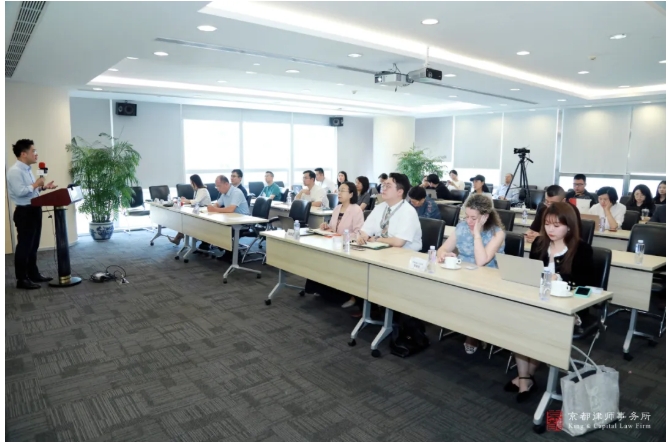
Event
The event began with Wang Shuaifeng, a lawyer at Beijing King&Capital Law Firm, introducing the core issues of concern and discussion at the event. The four experts analyzed the answers to these questions from the four dimensions of criminal, civil, substantive, and procedural law, drawing on both legal regulations and practical experience.
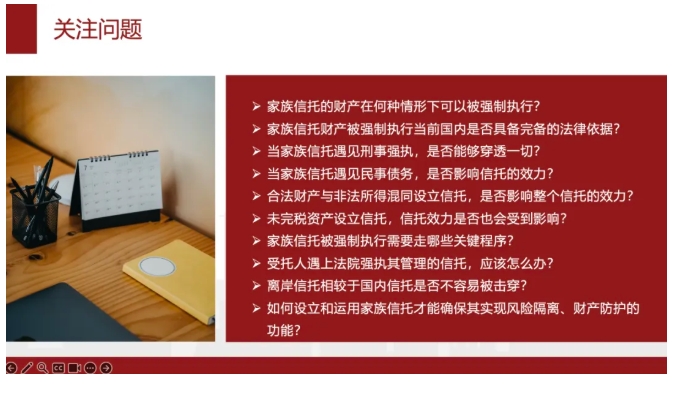
Can trusts truly be “pierced” in criminal enforcement?
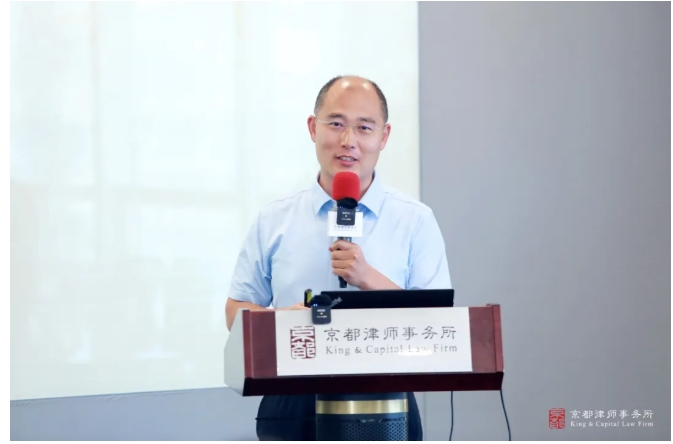
Liu Lijie, Attorney
Liu Lijie, Attorney, presented on the topic "Trust Dynamics in Criminal Cases: How Courts Penetrate Trust Structures to Recover Illicit Gains,“ sharing insights from three aspects: the basic structure and relevant regulations of trusts, the basic types of criminal penetration of trusts, and common misconceptions and risks associated with trust penetration. He stated, ”In criminal enforcement, any trust property that can be ‘penetrated’ should be a setup-type penetration (false penetration), meaning that the fundamental basis for the People's Court to enforce property is that the trust is invalid. For trusts established by the settlor using their personal lawful property for legitimate purposes, criminal enforcement should not be able to penetrate them, meaning that so-called enforcement penetration should not exist in the criminal domain."
How can trust property protect itself in cases involving the intersection of criminal and civil law?
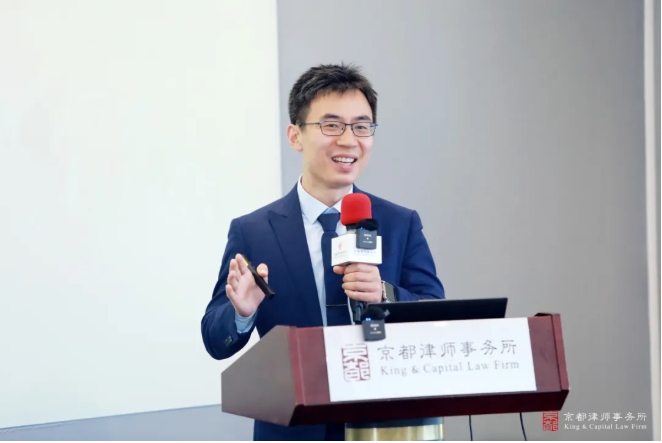
Attorney Teng Jie
Subsequently, Attorney Teng Jie shared insights on “Practical Solutions for the Enforcement of Trust Property in Criminal-Civil Intersecting Cases,” introducing recent criminal cases involving the enforcement of trusts. He analyzed the challenges posed by “general civil debts” and “criminal-related property” to the independence of trusts, and further proposed that criminal-related property should distinguish between “property penalties” and “proceeds of crime and criminal gains” in the enforcement logic of trust property. Subsequently, Attorney Teng Jie analyzed through case studies whether establishing a family trust with untaxed property would affect the validity of the trust. Finally, Attorney Teng Jie highlighted the sources of enforcement risks faced by private entrepreneurs when establishing family trusts and stated: "Although trusts may not be able to completely mitigate all risks, it is precisely because of this layer of isolation provided by trusts that we are gathered here today to discuss these controversial issues. If the parties had not established a trust in the first place, not only would they lose the rights granted by the Trust Law to file objections or raise defenses, but these enforcement measures would also become so inevitable for them!"
What should be done if trust property is subject to enforcement?
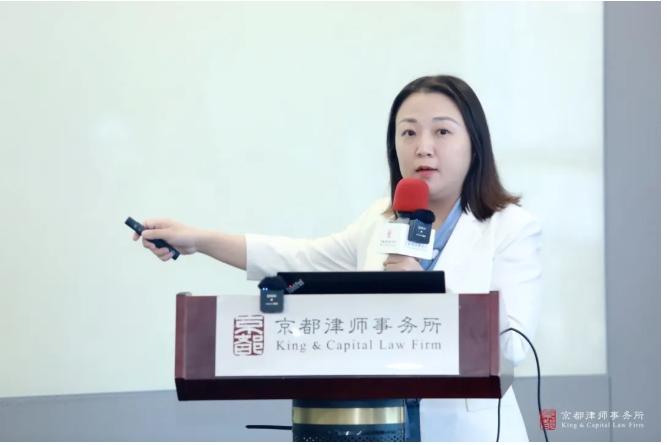
Youle Lawyer
The third session featured Youle Lawyer sharing insights on “Key Procedures and Response Strategies for the Enforcement of Trust Property.” Starting from the relevant legal basis, he discussed under what circumstances trust property can be enforced. Through the cases of “the first, second, and third cases of domestic family trusts being enforced,” he analyzed the underlying causes and summarized the core defensive logic: the legitimacy of the purpose and the source of the property are the “first line of defense” for trust property. Second, he proposed that one can legally respond to the forced execution of trust property through objection procedures and precautions when establishing a family trust.
Protecting and Defending Offshore Trust Structures
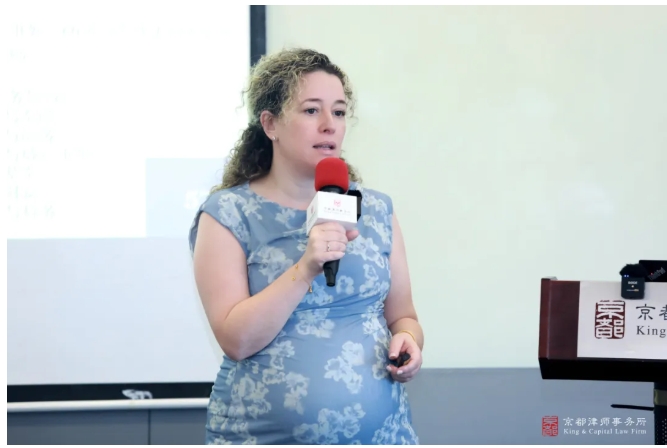
Vicky Lord Luo Xiaoqi
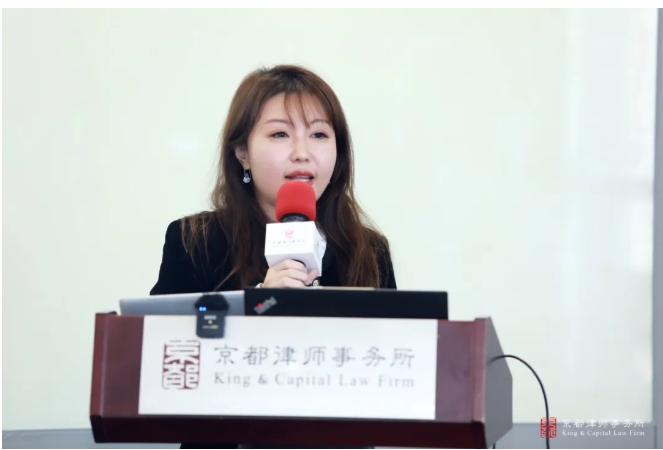
Zhao Xu Lawyer
At the end of the event, Vicky Lord (Luo Xiaoqi), Managing Partner of Harneys' Shanghai Office, presented on “Lifting the Veil: Protecting and Defending Offshore Trust Structures,” sharing the advantages and characteristics of offshore trusts in terms of information disclosure, trust penetration, validity of gifts, revocability of trusts, receiver arrangements, and false trusts, with Zhao Xu, a consultant at Harneys, providing a Chinese summary.
Event Commentary and Summary
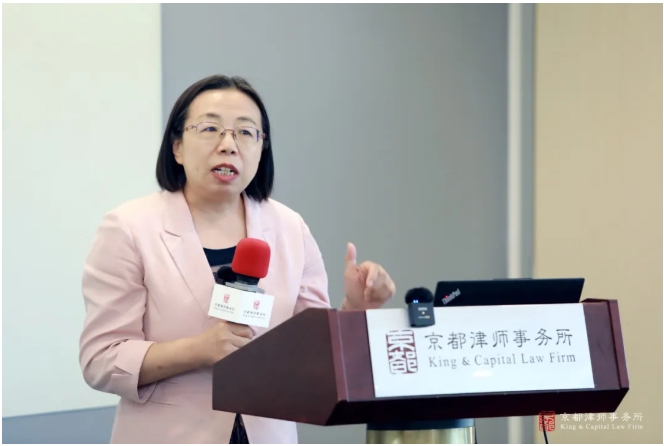
Attorney Gao Huiyun
Attorney Gao Huiyun summarized the discussion from three aspects: first, what conditions must be met for a trust to be valid? Second, what types of enforcement actions can a valid trust prevent? Third, what procedures can be taken to prevent enforcement actions?
Following the event, attendees engaged in interactive Q&A sessions with the experts on the topics discussed during the event. The experts provided detailed responses, offering in-depth interpretations and addressing the attendees' questions.
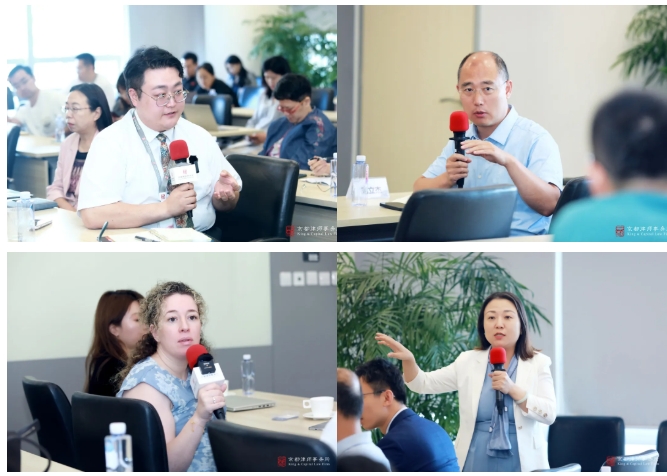
Event Venue
This event featured professional and practical discussions on a series of issues related to the enforcement of family trust assets. In the future, we will continue to focus on legal needs in wealth management and related fields, building a professional exchange platform to gather industry insights from both domestic and international sources, and providing broader and more precise legal services for everyone.




